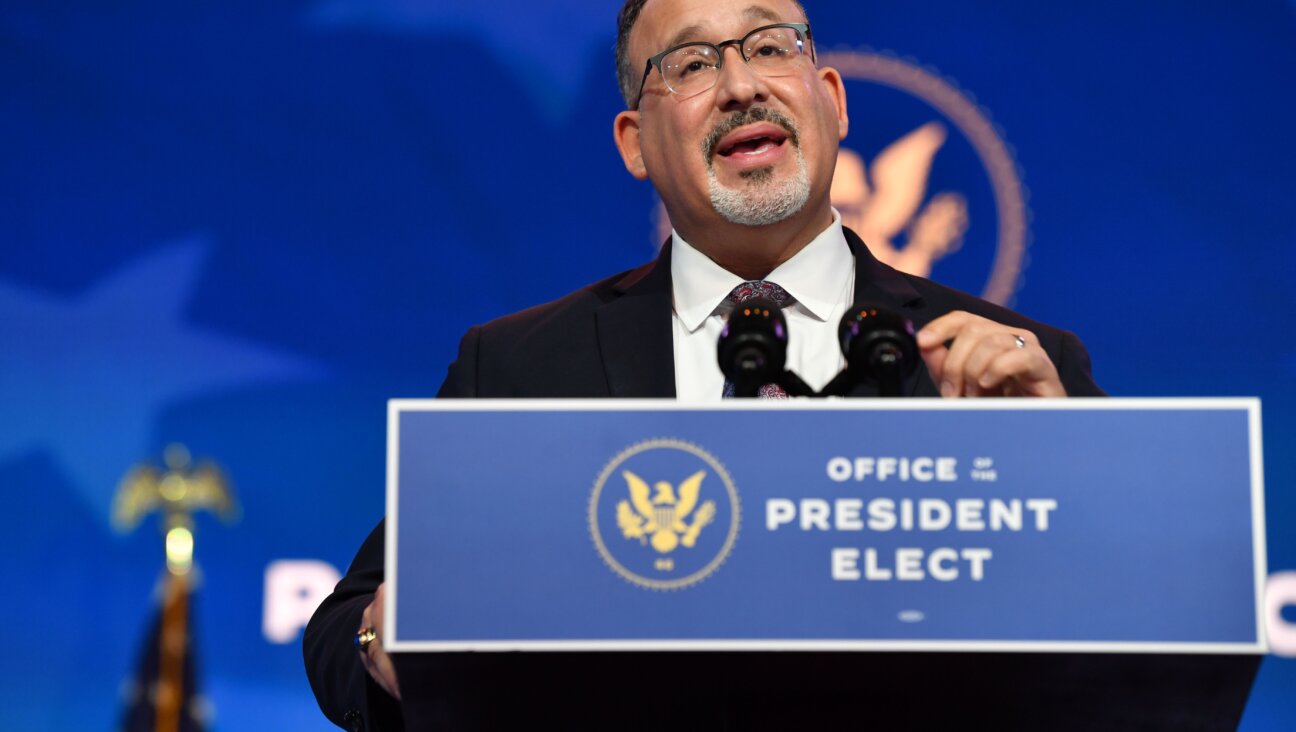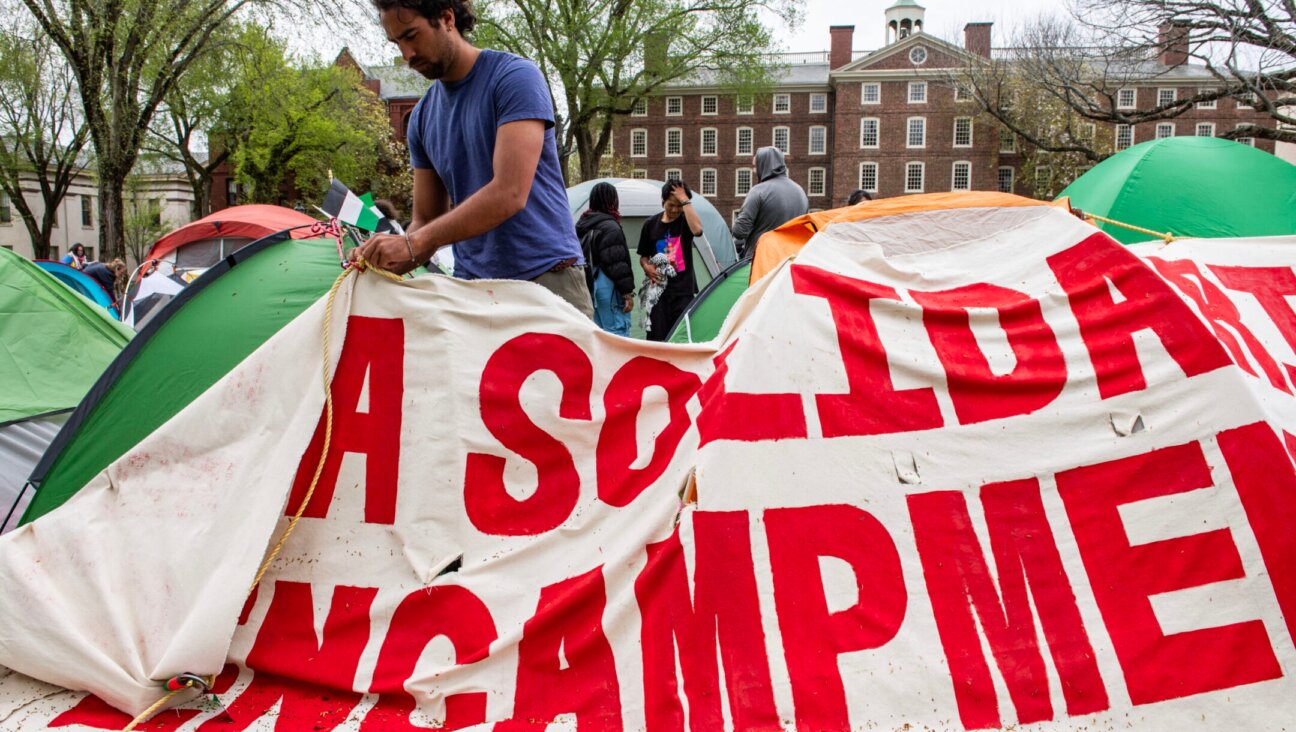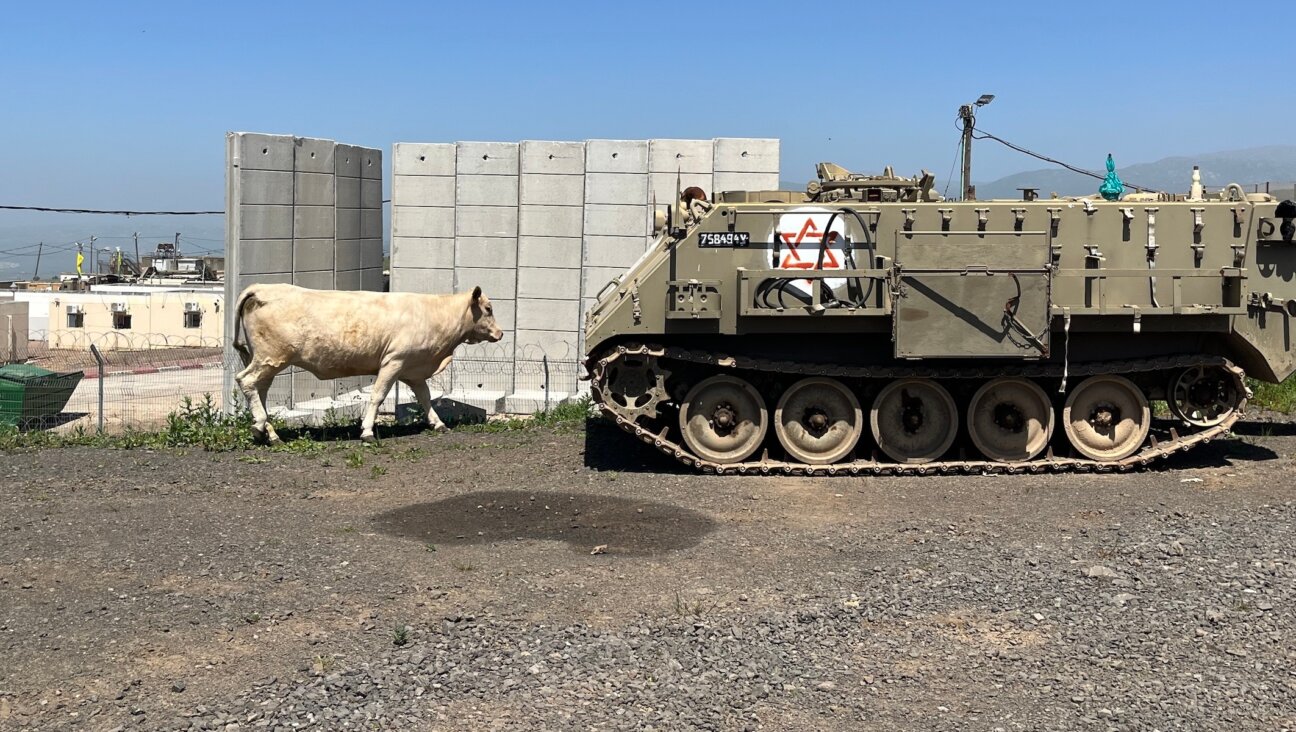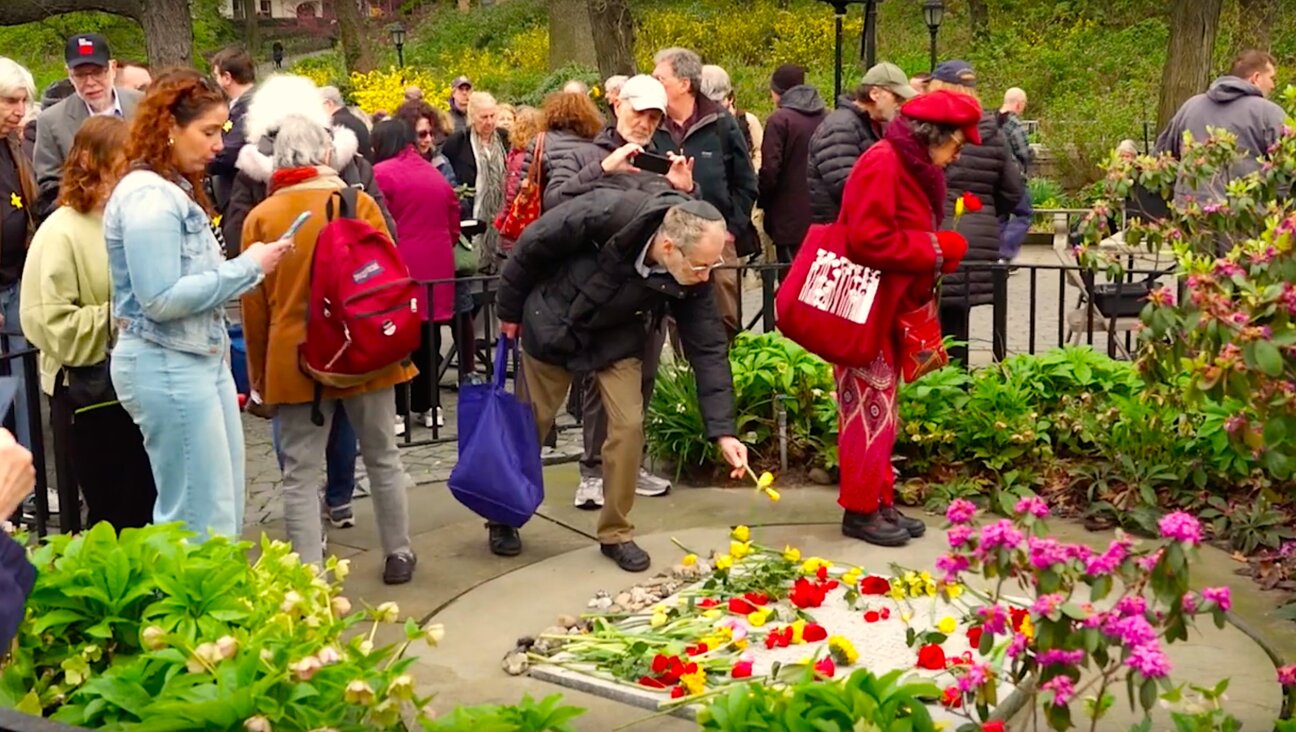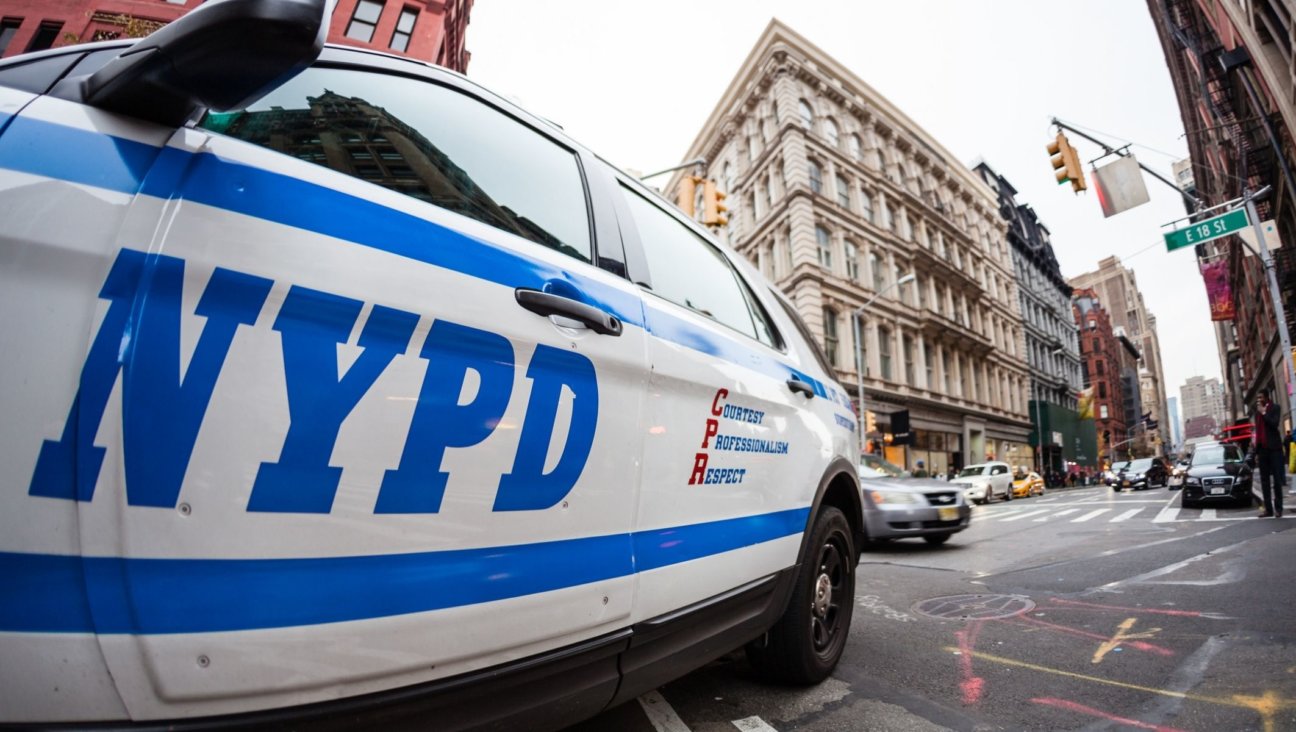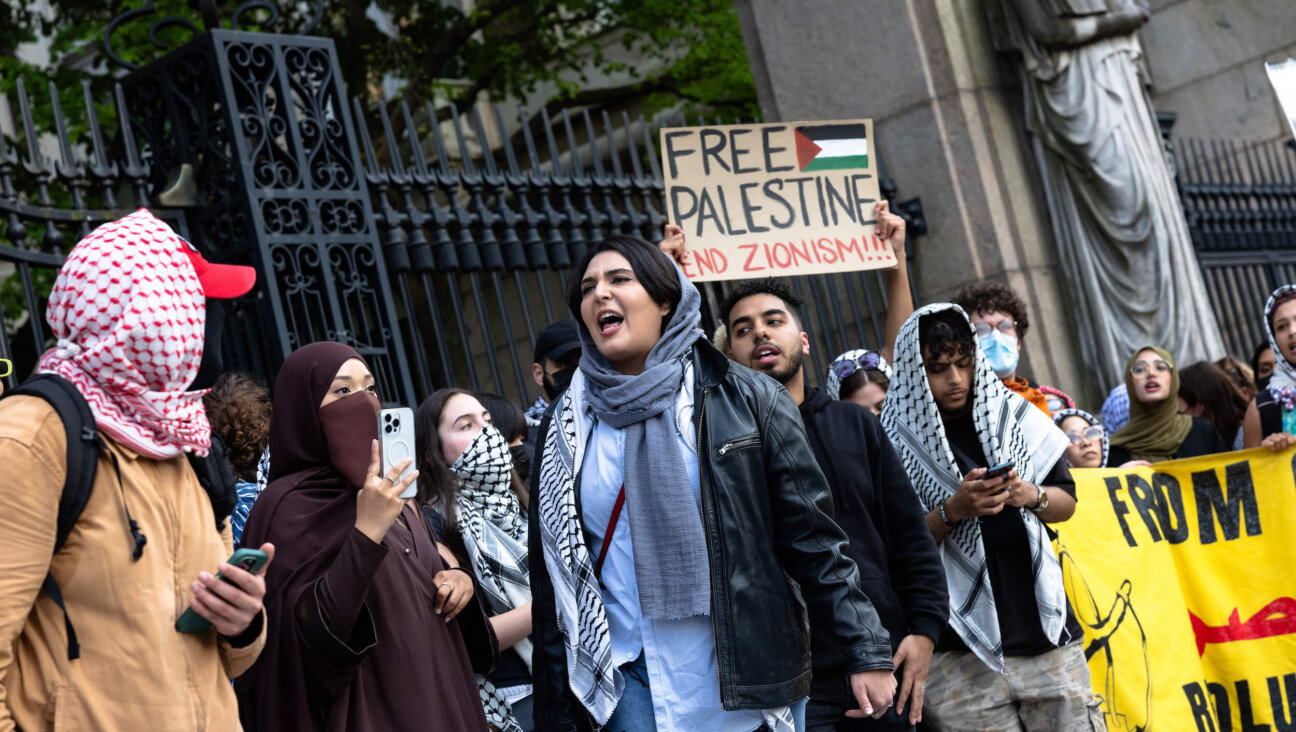Gay Rally Draws Straight Supporters
Every summer since 2002, a fairly nonviolent battle has taken place between the ultra-Orthodox community and the gay and lesbian community in Jerusalem ahead of the annual gay pride parade held in the capital. Ultra-Orthodox, or Haredi, Jews take to the streets, voicing their opposition to what they see as a desecration of the holy city by sinners. The gays field lawyers to defend their right to march.
Each year, the battle has intensified: Demonstrations have gotten larger, and the posters announcing that the parade will cause the capital “to burn” are more numerous and ominous.
Last year, the vitriol turned violent when one Haredi man stabbed three parade participants. But the parades go on.
This year, however, the low-scale conflict between two fringe communities expanded into what’s widely described as a nationwide “war” between secular and Orthodox Israelis over the character of Israeli society and the ability of the Haredim to dictate societal standards, by force if need be.
When newscasts reported that Haredim clashed violently with police and threatened more violence if the parade should take place, secular Israelis around the country got worried.
They perceived the Haredi threats as a threat to their own freedom to live as they desired.
“If Jerusalem is holy and you are therefore not allowed to realize your rights as a minority, then there are no human rights and this is not a democratic country; it is a religious country,” said lawmaker Avshalom Vilan of the left-wing Meretz party, in a phone conversation from Los Angeles.
Vilan and many other straight Israelis participated in the Gay Pride festival last week, as a show of support for democracy.
Rabbi Gilad Kariv, a leader of Israeli Reform Judaism and associate director of the Israel Religious Action Center, also attended the event.
“I think that it was quite clear that the main issue is not gay and lesbian rights in Israel,” Kariv said. “From a very early point in the battle, it was about democracy, human rights and the character of our society as a liberal and Western society.”
The November 10 event drew a record number of participants, with a marked presence of heterosexuals. Police said that 2,000 people attended. But Open House, the center representing the gay, lesbian, bisexual and transgender community in Jerusalem that organized the event, said that between 7,000 and 9,000 came. “We had 6,500 bracelets and gave them all out, and more people still showed up,” Open House director Noa Settat said.
The unexpectedly high numbers of straights heartened gay participants.
“It really empowers you — especially after how the Haredim behaved,” said a gay man named Boaz, who attended the event and asked not to give his surname. “Now people believe that the violence and coercion against gays is a symptom, that it’s actually against tolerance toward the whole of society.”
Jerusalem is holy to three religions with some 2 to 3 billion followers worldwide. Many religious Jews saw the parade as a provocation against their religious sensitivities .
“This is not a fight between democracy and dictatorship,” said Rabbi Efraim Holtzberg, a Jerusalem Haredi leader. “It’s a fight between holiness and abomination.”
“No one cares what people do in their bedrooms,” he continued, “but it is not normal that people go around half-naked in the holy city. It’s not democratic. It’s a dictatorship of the minorities. It’s a provocation against millions of religious people to allow a parade because a few homos want to walk around in their underwear. They need to respect the city they live in.”
Danielle Shapiro agreed. The 23-year-old Haredi mother, pushing a baby carriage with her husband last week past a burnt-out car at the main intersection in the militantly Orthodox neighborhood of Mea Shearim the morning after violent demonstrations there, called the parade “an affront.”
“It’s one thing to be a person and to have your own beliefs,” said Shapiro, a recent immigrant from Cincinnati. “But to make an agenda and make a public statement, as an action… in the place we hold to be most holy — that is an affront.”
Even some secular Jews, among them Shimon Peres, opposed holding the event in the city.
Violence climaxed in the days and nights running up to the big event, which took place November 10. Haredim blocked major road crossings around the country. In Mea Shearim, the barricades led to violent clashes with the police at night. Unable to deal with the scale of the violence, local police called in a special anti-terrorism unit.
Israeli TV news showed Haredim throwing rocks at security forces and burning tires to stave them off. The footage, much of which was filmed at night, easily could have been confused with past scenes of clashes between Palestinians and the Israeli military. The major difference was that the security forces did not open fire at the rioting Jews.
Rabbi Yehuda Levin, a leader of the Brooklyn-based Rabbinical Alliance of America, called blocking streets “civil disobedience.” When told that 13 Israeli Arabs were killed in October 2000 for similar acts, Levin replied, “If 13 Arabs were killed only for closing down the street, then I condemn the fascistic overreaction by a police force that for the last 50 years of this state has been out of control toward the underclass, be it Arab or Orthodox.”
He and other Haredi leaders blamed the police for the violence.
“You have disenchanted Israeli Orthodox youth who see the government does not show the slightest sensitivity to their religious sensitivities, so they made Lag b’Omer and Hanukkah a little early,” Levin said. “They burned and kicked over some trash cans. The response was jackbooted thugs coming in and breaking heads.”
Danger was not limited to the streets. Death threats came out of the Haredi community, some thinly veiled and others quite blatant. Community leaders warned that were the parade to take place, “Jerusalem would burn,” there would be “terrible consequences” and “people could get hurt.”
Several Haredi leaders announced they were planning to place a curse on the parade organizers and possibly on Israel’s attorney general, Menachem Mazuz, who authorized the event. Casting the pulsa d’nura curse requires a group of at least 10 religious Jewish men, all of whom are married and have children. It is said to bring the death of its object within a year.
Haredim last used it some 40 years ago against a Jerusalem mayor, who died a few months later.
Religious settlers cast the curse on former Israeli prime ministers Yitzhak Rabin and Ariel Sharon. Rabin was assassinated, and Sharon is in a coma.
Vilan, the Meretz lawmaker, voiced confidence that Haredim ultimately would not wield power over the Israeli capital.
“The attempt by the Haredim to dictate to all other parts of Israeli society what’s allowed and what is prohibited in Jerusalem has no chance to succeed,” he said. Not all Haredim supported the use of violence as a means to protest. “I oppose these demonstrations,” Yisrael Ben-Yodedya, 17, said from his street-side bookstall. “I think it causes [Haredim] more problems. We need to talk to Hashem to solve our issues.”
Days before the parade was to take place, the Jerusalem police reached an agreement with Open House, the gay rights center, to move the route to a district of museums and government offices, far from residential and commercial areas of town. Haredim continued to demonstrate. Finally the parade was canceled altogether and replaced by a rally at the Hebrew University sports stadium.
The police said they did not have sufficient personnel to secure a parade through the streets. Their manpower was already spread thin across the country because of fears of a Palestinian revenge attack following Israel’s killing of 20 civilians in Beit Hanoun the day before.
But many, including Haredim, saw the cancellation of the parade as a concession to the Haredi pressure. “It was quite a nice win,” Holtzberg said. “The streets of Jerusalem stayed clean. The sanctity of Jerusalem won over the dirt of Sodom and Gomorrah, baruch Hashem. But I think next year there will be another fight like this.”
Open House director Settat agreed: “From today, we are continuing our struggle to have full equality in Jerusalem and starting to plan for the 2007 parade.”

I hope you appreciated this article. Before you go, I’d like to ask you to please support the Forward’s award-winning, nonprofit journalism during this critical time.
Now more than ever, American Jews need independent news they can trust, with reporting driven by truth, not ideology. We serve you, not any ideological agenda.
At a time when other newsrooms are closing or cutting back, the Forward has removed its paywall and invested additional resources to report on the ground from Israel and around the U.S. on the impact of the war, rising antisemitism and the protests on college campuses.
Readers like you make it all possible. Support our work by becoming a Forward Member and connect with our journalism and your community.
Make a gift of any size and become a Forward member today. You’ll support our mission to tell the American Jewish story fully and fairly.
— Rachel Fishman Feddersen, Publisher and CEO
Join our mission to tell the Jewish story fully and fairly.








